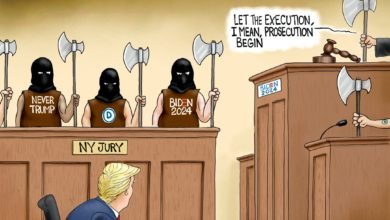Coming: higher inflation, higher interest rates, labor strikes, wage/price spiral
The August CPI will show much higher inflation causing the Fed to raise interest rates when they meet next week. Meanwhile, the UAW will strike.
On Wednesday, the Consumer Price Index for August will be released. It will show a significant increase in inflation, perhaps taking the twelve-month number up to nearly 4%. That will result in the Fed raising interest rates when they meet next week. Also next week, the United Auto Workers will go on strike. Welcome to Bidenomics.
The core inflation rate, which calculates inflation holding food and energy prices constant, has been running at about a 5% rate for the past year. In June 2022, when the annual CPI hit 9%, much of that was caused by rising food and energy prices.
In July of this year, the annual CPI was just 3%. Much of that decline was due to falling food and especially energy prices. Still, the core CPI is about 5%, which is more than twice the 2% level that the Fed seeks as its target.
Recall that the inflation problem is due almost entirely to the excess demand in the economy caused by huge Federal Government spending deficits and shockingly irresponsible Monetary Policy.
The Federal Government has accumulated nearly $9 trillion of deficit spending in the last four fiscal years. That has pushed the Public Debt up to $34 trillion. Much of the $9 trillion spending was in the form of free money that the government gave to households. The average family of four, for instance, received $11,400 in free money from the government in 2020 and 2021 whether they we negatively impacted by the shutdown or not.
Initially, most of the stimulus money was saved by consumers. The personal savings rate skyrocketed. Then they eventually spent it all. Because consumers enjoyed the spending spree, they began increasing their use of credit cards. Last month consumer credit card debt exceeded $1 trillion for the first time ever.
That added more excess demand.
To reduce consumers’ credit card usage, higher interest rates are necessary. When the Fed’s Open Market Committee meets next week, they will be forced to raise interest rates at least another 25 basis points and may increase interest rates by 50 basis points.
If they don’t do that and decide to continue the pause in interest rate increases, inflation will worsen in the coming months. Some argue that further rate increases may slow the economy enough to see up to 2 million workers become unemployed.
While that could happen, if the higher rates finally bring the inflation rate down to near the 1.4% rate we saw just before the Biden Administration took office, then 140 million households will see relief from higher prices and greatly benefit.
The real long-term danger of taking a cautious approach to dealing with inflation is that it could lead to a wage/price spiral. Usually just as a wage/price is beginning, we see large labor unions striking for higher wages. They argue that prices have gone up about 18% since January 2021 and their wages haven’t increased nearly as much.
Already we have seen UPS settle their labor contract. To avoid a strike, they agreed to pay their employees an average of $49 per hour. The drivers will eventually earn $170,000 annually in pay and benefits.
In order for UPS to remain profitable these higher labor costs must be passed on to consumers in the form of higher prices which leads to more inflation. This is how the wage/price spiral works.
The Screen Actor Guild has been on strike for two months. Later this week, the United Auto Workers will also strike all three of the major US automobile companies. This strike may be lengthy and very costly for auto manufacturers. And higher labor costs for manufacturers mean higher prices for consumers.
Stellantis, the new name for Fiat Chrysler, has offered wage increases of more than 3% annually for each of the next four years. In addition workers will receive $10,500 in cash as “inflation protection.” Sahwn Fain, the president of the UAW, called this offer ‘insulting.”
Higher inflation, higher interest rates, labor strikes and a wage/price spiral are a result of President Biden’s policies. No Joe, Bidenomics is not working.
Agree/Disagree with the author(s)? Let them know in the comments below and be heard by 10’s of thousands of CDN readers each day!




